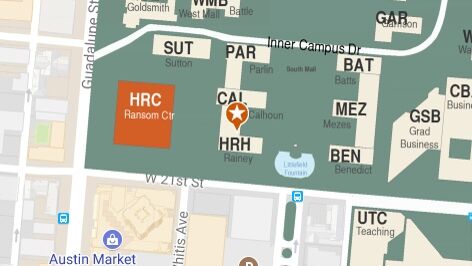Italian
Major in the College of Liberal Arts

The Italian major consists of 24 hours of upper division coursework and offers a rich and diversified curriculum in language, literature, linguistics, civilization, and film taught by award-winning faculty.
Courses include studies in composition and conversation, literature and culture of all periods, and various topics courses. Recently taught topics include Italian Drama Workshop, Fascism/World War II, and Images of Women in Modern Italian Culture.
The Italian major can be combined very effectively with studies in natural sciences, political science, history, literature, art and social sciences.
Freshman and External Transfer Admission
ShowProspective University of Texas at Austin students should visit UT Admissions to learn about the application process and how to declare a major.
Internal Transfer Requirements
ShowUndergraduates currently enrolled at UT who wish to declare an Italian major must first meet with the departmental advisor. There is no formal application process. For more information, visit the student affairs page on how to declare a major.
Required Courses
ShowVisit the Italian degree plan to see all required courses for the Italian major in the College of Liberal Arts. For additional information, view Italian course descriptions.
Specializations
ShowThe Italian major does not have multiple specializations or tracks, but the degree plan allows for students to focus on areas of interests such as literature, culture or linguistics. Qualified students can also apply for the honors program and write a thesis on a topic of their choosing.
Personality
ShowThe students in the Italian major either start with or develop a passion for the Italian language and culture. They are language learners who seek to develop skills beyond the required foreign language requirements. Italian majors desire a more meaningful and thorough immersion in grammar and writing, literature, and culture. Many engage in a study abroad experience, especially in the faculty-led program to Rome.
Skills
ShowAs political and economic issues become increasingly international in scope, there is a growing need for Americans to be proficient in world languages. Recent graduates have gone on to medical school, graduate school in the humanities and social sciences, and law school; others have started promising careers in journalism, international business, government service, and teaching.
There is a pressing need for qualified and dedicated teachers of Italian, from elementary schools to universities. Many private companies and public agencies need employees and managers who are proficient in Italian. A command of Italian, combined with training in business or science, may open opportunities in a variety of American companies that are active in the European community.
